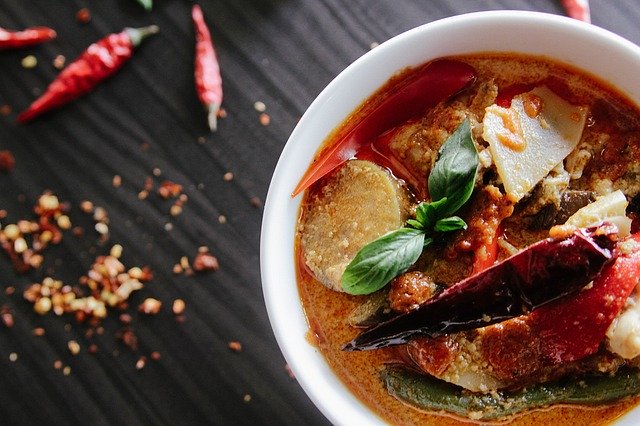Americans love eating out. In 2019, one out of three Americans reported dining out a few times a month. 50% were ordering from a menu at least once a week! The cherished pastime of going to a restaurant all but disappeared in the wake of the COVID-19 pandemic. Lockdowns contributed to a rise in mental health issues, like anxiety and claustrophobia.

As millions of people found themselves at home with more spare time than they’ve ever had before, the art of home cooking experienced a much-needed revival. In addition to the well-known health benefits of making food from scratch, research has shown that home-cooked meals can have a positive effect on mental health and wellbeing.
Structure and routine
Being a successful home cook requires one main skill– organization. Planning a meal requires the foresight to head to the supermarket and prepare the ingredients. This naturally pushes people to adopt a routine for their day.
Routines are associated with a host of mental health benefits. Most notably, a structured day reduces the wear of decision-making. Every time a person makes a choice, it consumes a bit of brain energy. Having a set routine to follow reduces the stress associated with making decisions.
Meal planning can help save even more time and cognitive space. Rather than rummaging frantically through the cupboards every night, people can spend an hour or two a week planning their meals and buying all the ingredients.
When dinner time rolls around, they already have everything they need in place, and making the meal becomes a more enjoyable experience.
Stress relief
Cooking requires a lot of focus, but the repetitive nature of tasks like stirring can help the mind and body relax. People are also more likely to stay in the present moment while cooking, as getting lost in daydreams can lead to burnt, inedible food. Likewise, cooking is an immersive sensory experience.
The oil pops, the meat sizzles, and the aroma of baking bread waft through the air. All of these stimuli help cooks remain mindful of their surroundings.
Psychologists have long documented the mental health benefits of staying present.
In fact, mindfulness therapies are shown to be an effective treatment for anxiety and depression.
Stable mood
The average takeaway meal has more fat, sugar, and sodium than most individuals should eat in a single day. Not only does this spell trouble for the waistline, but unhealthy food can also contribute to poor mental health.
Studies have shown that sugary foods trigger anxiety symptoms. When sugar enters the bloodstream, it creates a rush of energy. However, this sensation is short-lived. The body must work very hard to process the sugar, which leads to fatigue.
This energetic roller coaster can make people feel cranky, anxious, and irritable. Sugar crashes are even more detrimental to people with mood disorders. Consuming too much salt can have similar physiological effects.
Home cooking provides the immense benefit of giving individuals control over the ingredients in their food. Replacing high-sugar and high-sodium meals with nutrient-rich produce and lean meats can improve brain function and eliminate food-related mood swings.
Better relationships
Isolation and loneliness are terrible for mental health. Humans are naturally social creatures and seek out connections with others. Very few things bring people together like a home-cooked meal.
Cooking and eating together are bonding experiences that appear in virtually every culture. Families that have sit-down meals together are better at communicating. Dinner parties are also a great way to spend time with friends and loved ones.
Learning to cook and trying new recipes is also a chance to make social connections. Cooking classes, virtual or in-person, make the perfect venues for finding like-minded people and making new friends.
Creative outlet
Home cooking gives people an opportunity to be creative, even if they don’t necessarily see themselves as artistic. Creativity is a well-known mood booster.
During the creative process, the brain pumps out the feel-good chemical, dopamine, which gives the sensation of award and accomplishment. This creates innate motivation for returning to the kitchen, again and again, to tweak old recipes and explore new ones.
Tackling a new recipe can also build self-confidence. Setting and accomplishing small goals can make people have a more positive view of themselves and expand their ideas of what they are capable of.
With all of these benefits of home cooking, who needs takeaway?